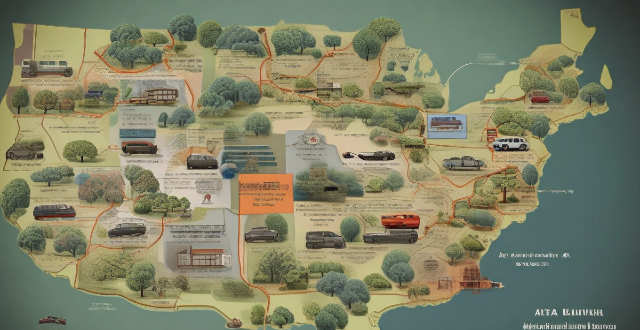Immigration policies have a significant impact on international relations, affecting economic partnerships, diplomatic ties, and cultural exchange. These policies can attract highly skilled workers, boost innovation, and enhance trade relationships, but they can also lead to job market issues and social tensions. Cultural diversification from immigration can improve mutual understanding and respect between nations, while restrictive policies can hinder the movement of diplomatic personnel. A country's approach to refugees and asylum seekers can influence its global standing, and the handling of refugee crises can lead to political tensions. Economic migration can cause a brain drain or be viewed as a form of development assistance. Immigration policies are a critical area of focus for international relations due to their far-reaching implications.

How do Immigration Policies Influence International Relations?
Immigration policies are a crucial component of a nation's domestic and international strategies. These policies can significantly impact the relationship between countries, affecting everything from economic partnerships to diplomatic ties. Here's how:
Economic Impact
Job Market
- Positive Impact: Countries with liberal immigration policies often attract highly skilled workers, which can boost innovation and productivity in the host country. This can enhance the country's economy and improve relations with countries supplying these skilled workers.
- Negative Impact: On the flip side, if a country's immigration policy leads to an influx of low-skilled workers, it may negatively affect the job market for locals, leading to resentment and strained relations with the sending countries.
Trade and Investment
- Increased Trade: Open immigration policies can foster stronger trade relationships as immigrants often maintain connections with their home countries, facilitating business and trade links.
- Foreign Direct Investment (FDI): Strict immigration policies might deter potential investors, while friendly policies can encourage FDI, further strengthening economic ties.
Cultural Exchange and Diplomacy
Cultural Diversity
- Enrichment: Immigration can lead to cultural diversification, enhancing mutual understanding and respect between nations. This can improve international relations by promoting tolerance and acceptance.
- Conflicts: Conversely, cultural differences can sometimes lead to social tensions or conflicts, which can affect diplomatic relations.
Diplomatic Missions
- Personnel Movement: Restrictive immigration policies can hinder the movement of diplomatic personnel, potentially causing friction between countries.
- International Cooperation: Friendly immigration policies can facilitate cooperation on various fronts, including education, research, and culture, thereby improving bilateral relations.
Political Considerations
Refugees and Asylum Seekers
- Global Responsibility: A country's approach to refugees and asylum seekers can influence its standing on the global stage. Generous policies can enhance a country's reputation, while harsh policies might lead to international criticism.
- Political Tensions: The handling of refugee crises can also lead to political tensions between countries, especially if neighboring countries feel they are bearing an unfair burden.
Economic Migration
- Brain Drain: If skilled individuals emigrate en masse from one country to another due to favorable immigration policies, it can cause a "brain drain," potentially harming the sending country's economy and straining relations.
- Development Assistance: Some countries view emigration as a form of development assistance, which can positively impact relations between developing and developed nations.
Conclusion
Immigration policies play a multifaceted role in shaping international relations. They can be a tool for economic growth, cultural exchange, and diplomatic engagement or a source of tension and conflict. The way countries craft and implement their immigration policies has far-reaching implications that extend beyond their borders, making it a critical area of focus for international relations.